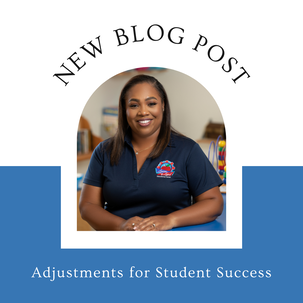 In the last few weeks, I have had a number of conversations about meeting the needs of diverse learners in the classroom. Sometimes, minor adjustments, in the form of adaptations, accommodations and modifications, can make a world of different in the level of student success. I thought it may be helpful to share what these adjustments can look like in the classroom to provide clarity to both teachers and parents. Firstly, let me lay some ground work. When we are looking at ‘Special Education’ we are referring to the way that instruction is designed to meet the needs of exceptional students. This may require special materials, teaching techniques, equipment or even facilities. When we refer to exceptional students or learners we are referring to students that require special education and related services if they are going to reach their full potential. Many of our classrooms in the Turks and Caicos Islands are Inclusive Classrooms. This means that there is a general education curriculum being taught where students with or without learning differences learn together. For this to happen with success, educators often must ask themselves, how can the content I am teaching be adapted so that it can be accessed by all my students? Adaptations are changes in the way instruction and assessment are carried out to provide equal opportunity for students to achieve their learning outcomes. For exceptional learners, these adaptations can be essential for them to reach their potential. Adaptations can be either accommodations or modifications. Accommodations change how the students access the curriculum. They don’t change what students are learning, but how the content is presented or how they are showing what is being taught to them. Here are examples accommodations:
Modifications are a little different than accommodations. Accommodations don’t change the content or instructional level, whereas modifications do. Modifications take the individual students need into consideration and change what they are expected to learn. Here are examples of modifications:
Inevitably when we discuss accommodations and modifications, the idea of fairness arises. It’s important to highlight that fair does not mean equal. Fair means giving students what they need. Modifications and accommodations do not give students an unfair advantage but are designed to create level the playing field…in other words to bring equity into the learning equation. When we focus on building equity into our education system and our learning environments, we create opportunities for all students to thrive.
0 Comments
Did you know that the importance of early mathematics is overlooked?
On Friday, the teachers at Precious Treasures International Primary were refreshed on important ways to make math come alive and move from the abstract to concrete for young learners. This workshop covered:
For this week's episode, we take a look back at episode 55. Latasha Strachan steps into the 'interviewer' role and Interviews Yolande Robinson. This episode is especially geared towards parents, educators, and anyone looking to shift the success narrative. We discuss the importance of intentionally defining what success looks like in this period. We explore the importance of choosing attainable benchmarks for ourselves, our children or our students, and our families, and preparing our environments and our mindsets to attain these benchmarks.
Yesterday we had the opportunity to with work with the Turks and Caicos Islands Gaming Commission. Our afternoon was filled with lots of learning, debate, laughter, discussion and fun.
"Building Our Team Dynamic" reminds us that it is not enough to put a group of individuals together in the same department and call them a team. A team dynamic is built through an intentional effort by all members of the team. Way to do Gaming Commission!  It's hard to believe we are already in November! Many of our students are starting to prepare for their end of term exams. A common complaint that I get is that ‘my child doesn’t know how to study.’ If you are in this boat, not to worry, I have some tips that will help. Firstly, it’s important to remember that studying is a skill that can be taught. When our kids are not given instruction on how to study, they often just look over their pages endlessly with without a goal in mind. For studying success, we want them to have study strategies that can help them improve. Start by looking at the subject areas that your child needs to study. In areas where there are example problems or papers that can be used, guide them through the practice questions that can be completed. Plan with them as to how many review questions they should get done within a certain period. In subjects that require memorization of definitions and facts, it may be helpful to make some flash cards. Put the term on one side, and the definition or important facts on the other side. Teach your child how to go through the stack of terms and say the definition or facts orally before checking the answer on the back of the page. When there is a lot of reading involved, suggest that they look at the headings of each section and turn the headings into questions. For examples, if the heading of a section is, “Natural Resources within the Turks and Caicos Islands,” guide them into turning this title into a study questions – “What are the natural resources found in the Turks and Caicos Islands?” Writing the questions, they make in a notebook or on flash cards provides a great way for them to review content. In addition to the three strategies provided above, here are some important tips to keep central when supporting your child through exam season.
"90 % of how well the talk will go is determined before the speaker steps on the platform." Somers White Over the last few weeks, two employees from the Sports Commission of the Turks and Caicos Islands have been joining me weekly to work through ‘The Public Speaker.’ This coaching program is 5-sessions and walks participants through planning, creating and executing impactful speeches and presentation.
Being a confident public speaker can be a benefit to your personal and professional life.
For this week's conversation we take a look back at Episode 46 - Sitting with Uncertainty. In this episode, which originally aired on May 29, 2021, we discussed the emotions that can come up with uncertainty, how to manage these sometimes heavy and unpleasant emotions and how to draw on your mindset and faith to trust the opportunities and blessings that come out of uncertainty.
Stay tuned for New Episodes beginning November 18th!
We closed out October in Grand Turk for the launch of The New Vision Foundation. I was honored to be the guest speaker at their launch. This non--profit organization, that strives to support the development of the youth of Grand Turk is off to a great start. We look forward to seeing what they have planned in the upcoming months.
As we continue to prepare for the launch of new episodes of Shifting Perspectives, here is a look back at 'Anchored and Persevering.'
Our last workshops in October were with the staff from Mr. Grouper's Restaurant and Les Suites at Mr. Grouper. Participants enjoyed the opportunity to learn, debate and laugh together. Each group had the opportunity to learn about:
For this week's conversation we are re-launching our first episode together. Stay tuned for new episodes beginning November 18th!
____ For this week's conversation I am joined again by Latasha Strachan. Latasha's essence revolves around being a student, a teacher and a coach. She is driven by authenticity and her passion is in spiritual and emotional wholeness in women seeking empowerment. On this episode Latasha joins me on the Shifting Perspective platform to discuss two very special words: passion and purpose. We discuss what these words mean to us, where to start if you are unsure where your passions and purpose lie, as well as the power of activation that comes in sisterhood when discovering, exploring and living in your purpose and passion. On Monday we had the pleasure of continuing to work with the Royal Turks and Caicos Police on of Diversity, Equity and Inclusion.
We had great debate, great learning, great reflection and great laughter. We focused on the following areas: ✔️Creating a Mindset for Inclusive Leadership ✔️ DEI Terminology ✔️Stereotypes, Bias and Microaggressions ✔️ Generational Gaps ✔️Creating a Culture of Inclusion.
Last week we completed a Soft Skills Refresher with the supervisors and managers at Ocean Club.
As we worked through the content of Interpersonal Skills, Understanding and Resolving Conflict, and Building Out Team Dynamic, we had great learning, discussion, debate and laughter. We look forward to working with Ocean Club again soon! Yesterday we had our second of three sessions with the Ocean Club Management team. People often assume that conflict is always negative, but it does not have to be. Conflicts are a sign of a problem, and when we view conflict as an opportunity to solve problems, we can make a shift that becomes solutions oriented.
As with most Soft Skills, managers are first encouraged to learn about the topic, and look inwards before looking outwards. Having an understanding of conflict, how we manage conflict, and how we can support our team members as they navigate through conflicts is the first step to implementing the conflict resolution process. The topics discussed in this session include:
I began Shifting Perspectives in May 2020. We were in the height of the pandemic, and I was looking for ways to connect with other Caribbean women around the world. Shifting Perspectives was the vehicle that allowed me to have fire side chats with some of the most amazing women and it allowed for our conversations to come into homes, your cars, and your ear buds. We sought to fuel listener in the way they worked, the way they thought and the way they parented.
Fast forward, and I’m excited to announce that in November 2023 Shifting Perspectives will be back! This time, Latasha Strachan will be joining me as co-host! For avid listeners, the name Latasha Strachan won’t be a new one for you. We are overjoyed to be teaming up give Shifting Perspectives life once again! In anticipation of launching our first episode together on November 18th, we have decided to re-launch some of the episodes that we have already done together. Happy Listening! 🎧 Listen to Shifting Perspectives on Amazon Music, Apple Podcasts, Spotify, Google Podcast, Stitcher, Pocket Casts, Overcast, Castro, Castbox, Podfriend or at www.learnandleadltd.com/podcast Yesterday we worked with our 3rd group of supervisors in the Royal Turks and Caicos Police Force on the Continuous Performance Management. This workshop is a great opportunity for managers to refine their coaching skills and gain and refine their performance management techniques toolbox.
Yesterday's workshop had lots of learning, reflecting, discussing and debating performance management techniques. The objectives of our Continuous Performance Management workshop are:
Last week we had the pleasure of working with the Management at Ocean Club. We focused on the development of one of the most essential soft skills- Interpersonal Skills.
An individual’s interpersonal skills are crucial to their success in the workplace and in life. During our session we explored the following topics:
Way to Go Ocean Club! Yesterday, Mrs. Guilmise Pierre was delighted to make a trip to South Caicos to work with the 4th and 5th formers from the Marjorie Basden High School in observance of National Youth Week.
Mrs. Guilmise conducted a Youth Skills Workshop under the theme of “Celebrating Youth Leadership - Empower, Envision, Energize, Educate, Engage" This interactive workshop had participants engaging in activities, games and discussions around topics of:
Yesterday I spent the day with 15 members of the Royal Turks and Caicos Police Force. We did a lot of learning, discussing, and debating performance management techniques. The objectives of our Continuous Performance Management workshop are:
This week I had the pleasure of conducting 2 workshops with the Department of Education and teachers from Providenciales, Middle Caicos, Grand Turk, South Caicos and North Caicos to explore Language Acquisition in the Linguistically Diverse Classroom.
It’s not uncommon to find students who are coming to school with very little knowledge of the English language. It’s important that teachers are equipped with the mindset and strategies to help their students thrive. In our sessions, we explored: ✔ï¸Creating Safe, Inclusive and Supportive Environments ✔ï¸Understanding Diversity, Equity and Inclusion in Education ✔ï¸Oral Language and Vocabulary Development in the Early Years ✔ï¸Teaching English Language Learners ✔ï¸Stages of Second Language Acquisition ✔ï¸Approaches to English Language Learning Earlier this week, I had the pleasure of joining the grade 5 students at Precious Treasures International School to discuss the Emotions and Learning.
The students enjoyed learning, discussing and making real life connections as to how their emotions can affect their depth of their learning and retention. Way to go Grade 5!
Last Friday we celebrated International Literacy Day at Oseta Jolly Primary School. Mrs Guilmise and Mrs. Lorna were invited to Oseta Jolly Primary School to have a Read Aloud session with Grade 5 students. The team shared one of our favorite books, "Christopher, Clean Your Room!" by Itah Sadu. They also spoke on the importance of reading and how much fun it can be. The event was a success! Students were very engaged in the story by making predictions and drawing conclusions about the character. A big thank you to all the teachers and students of Oseta Jolly for a job well done for your commitment on promoting reading!
This week has been a treat, because I have gotten to facilitate one of my favorite education workshops two days in a row! Yesterday I worked with the staff at the International School of Precious Treasures. In addition to having a little team building fun, we explored creating inclusive classrooms.
We wish the teachers at ISTCI an awesome academic year!
Yesterday we spent our morning with Precious Treasures International School exploring Diversity, Equity and Inclusion in Education. Our session was filled with lots of learning and ah-ha moments!
DEI in Education is a powerful workshop that explores the awareness of topics such as inclusion, ethnocentrism, stereotypes, unconscious bias, micro aggressions in the classroom and more. We wish the teachers at PTIS an awesome academic year!
Earlier this week we made a quick trip over to the Nation's Capital to run a small group session with the Royal Turks and Caicos Police Force. We had a great time learning, discussing, debating and role-playing performance management techniques. The objectives of our Continuous Performance Management workshop are:
|
Author
Yolande Robinson, M.Ed. PodcastShifting Perspectives is a conversation with Yolande and Latasha that challenges Listeners to fuel themselves with diversity in the way they think, the way they work, the way they parent and the way they live their lives.
Listen to Shifting Perspectives on Apple Podcasts, Audible, Amazon Music, Spotify, Google Podcast, Stitcher, Pocket Casts, Overcast, Castro, Castbooks, or Podfriend. Archives
April 2024
Categories
All
|
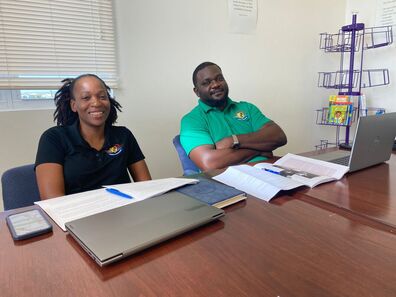
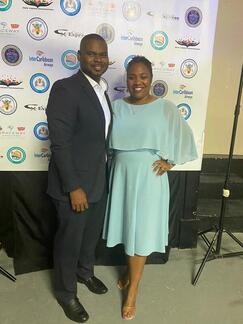
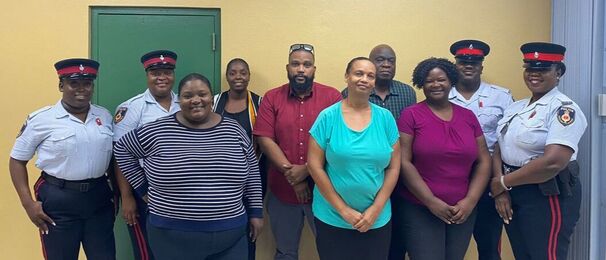
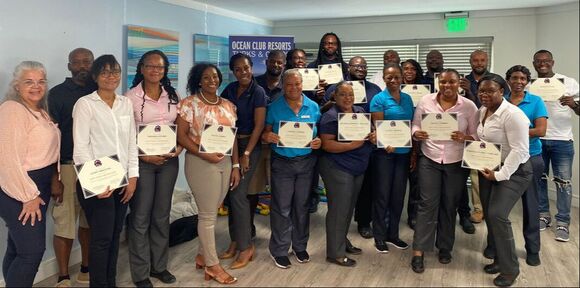
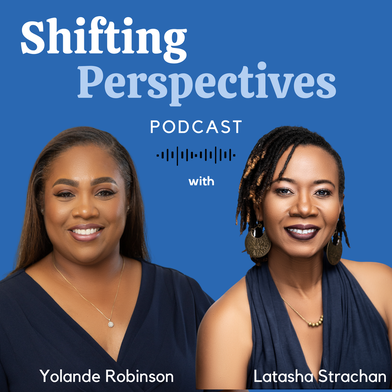
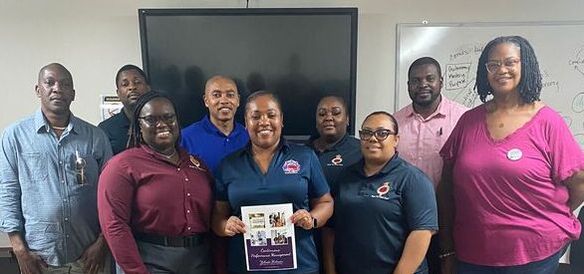

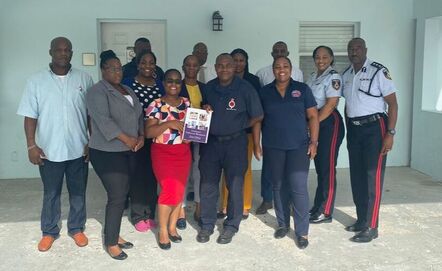
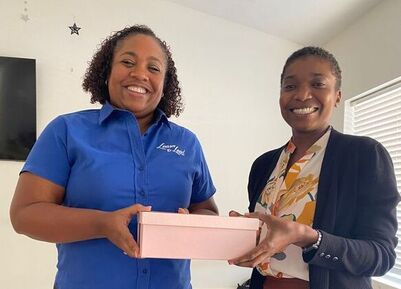
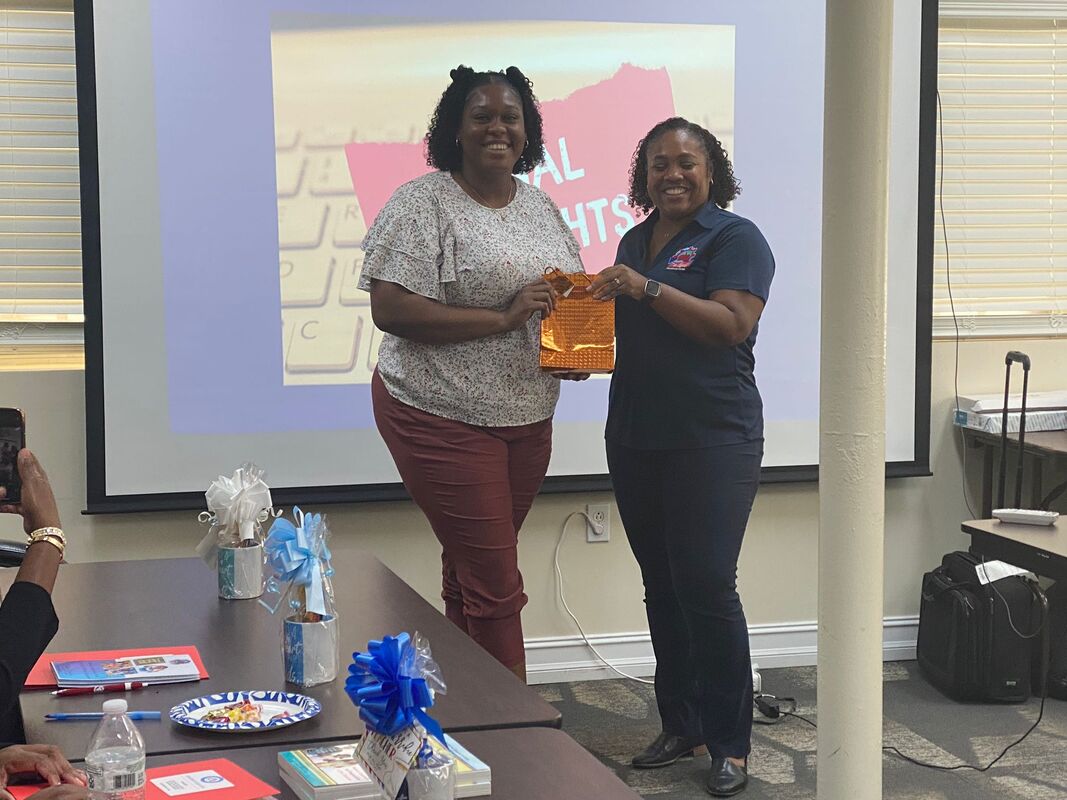
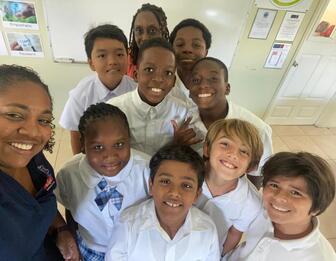
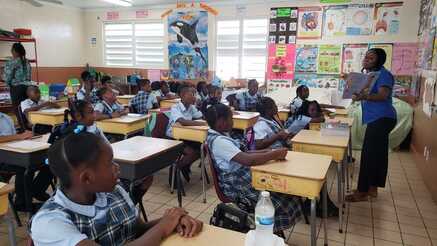
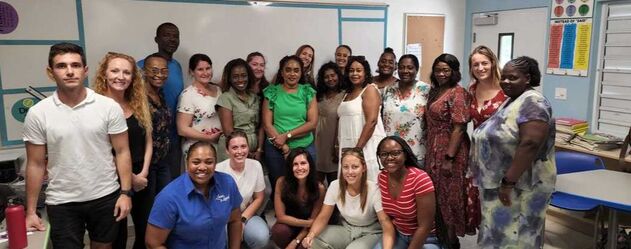
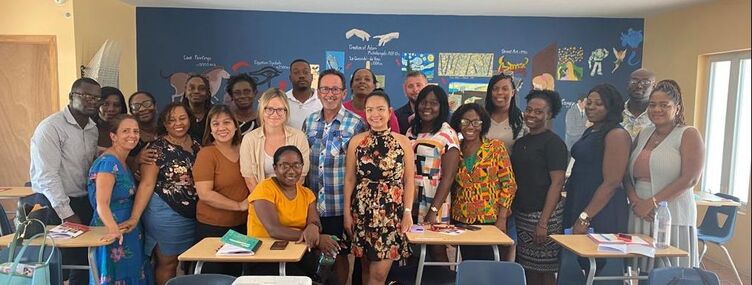
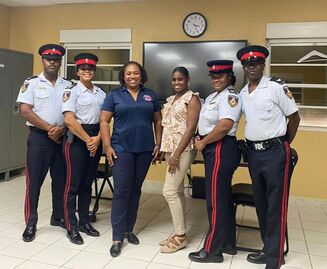
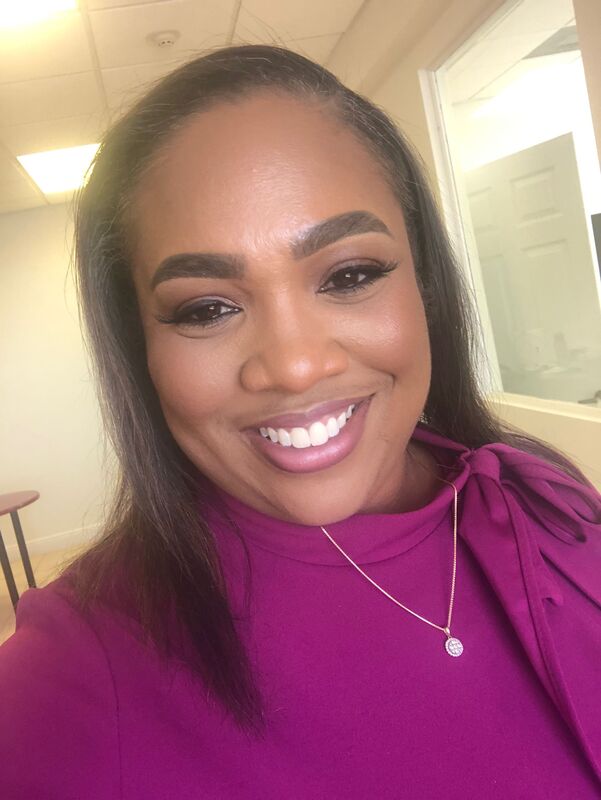
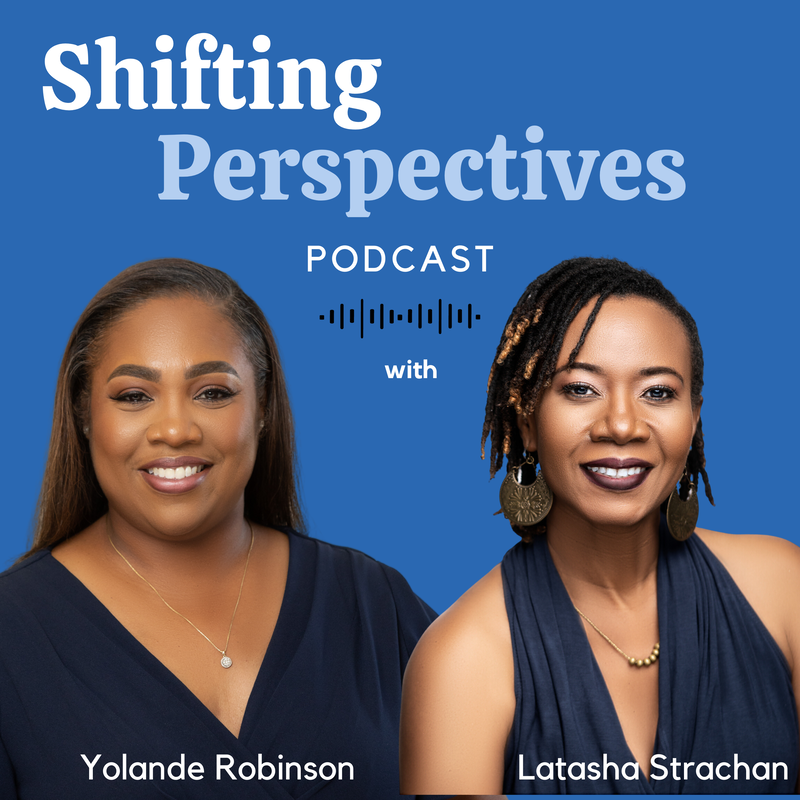
 RSS Feed
RSS Feed